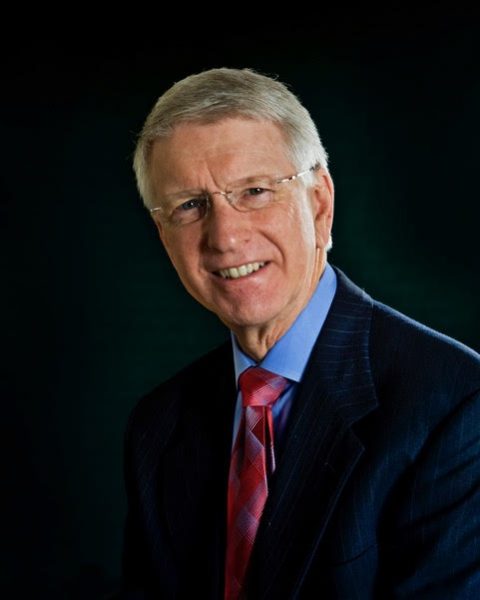Do We Need New Adventist “Distinctives”?
by Edward Reifsnyder | 2 August 2019 |
In yoga, there is a position named Warrior 2. It looks like this:

The pose suggests kinetic energy and directionality. The body appears to be moving forward, but from the strong, stabilizing base of the rear foot. The eyes are looking over the front hand into the distance. While energy and forward motion are implied, the yogi also looks grounded, balanced, and stable. The pose is helpful for building strength and balance.
One esoteric interpretation of the Warrior 2 pose is that while honoring and being grounded in the past (the rear foot), the man is looking and leaning into the future, with the predominance of weight on the front foot, the foot leading into the future.
Past or Future?
There are voices in our Seventh-day Adventist Church that, in this yoga metaphor, would have us alter the Warrior 2 pose by turning our head and looking backward toward some imagined golden past.
We hear comments about “historic Adventism” and “classical Adventism.” I don’t believe there has ever been a golden age of Adventism. Research and analysis would show that the Seventh-day Adventist Church has in every era of its history experienced theological challenges, evolving theological understandings, variations in practice, dysfunction, disagreements about organizational matters, variances from policy, oscillations in the issue of faith versus works, racial discrimination, and slips off the center of the road into various ditches. We have never “arrived.” If some people think there was a period when things were just right, perhaps it is because they were just somehow personally more comfortable then.
If we haven’t ever arrived, where are we going? Are we anxious to recover a past era? Or do we want to go forward toward a future something? If so, what?
My basic thesis: I propose that we should be looking toward a future that is a lot more like basic, core Christianity. I think the successful Seventh-day Adventist Church of the future will have an emphasis much more like The One Project than a Revelation seminar or a traditional evangelistic meeting. Some will be outraged by that statement. Others will fully resonate with it. I am convicted that it is true.
Why do I feel that way? Because salvation by grace through faith in the person of Jesus is the one essential, indispensable, irreplaceable, non-replicable piece of Christianity. No exceptions. Ergo, Jesus should be the laser-like, prime focus of the Adventist church or any Christian church.
What Is Most Important?
Somehow, the Adventist Church seems to think it has more important business to attend to than focusing on life with Jesus. We think we must be primarily apocalyptic. How many times has the conference president showed up at your church and begun his talk with “Jesus is coming soon. Amen?” We seem to think we should focus on Revelation 14 at least as much as, if not more than, life with Jesus. I disagree.
It seems to me that we line our beliefs up like this, where Jesus is just one doctrine among many.

I believe we should line up our doctrines like the following, where Jesus is first and foremost, and his preeminence is obvious. Our focus should be such that we have to consciously decide to look past Jesus to see what else is out there.

In some ways, we are a bit gnostic. It is part of our culture to believe we have unique insight, glimpses of hidden information. Knowledge is paramount. Have you noted the names of some ministries? Secrets Unsealed. Amazing Facts. Amazing Discoveries. Brochures for evangelistic meetings reek of mysterious beasts, coming doom, hidden knowledge revealed, and the promise of disclosure of insider information to help listeners get on the inside with us.
This strategy is intended essentially to take market share from other Christian fellowships. There is an assumption that listeners are Christians with whom we will share more accurate knowledge.
The Basic Story of Jesus
The truth is we are just rubbish at telling the secular, the “none,” the unchurched, and the seeker the basic story of Jesus and salvation. We are way too sophisticated for that.
We like to promote our system of “truth,” an intricate, interwoven system of prophecy and theology. We love to promote our “distinctives” (spellcheck really doesn’t like that word) as though they provide special merit in the kingdom.
Well, Jesus simply says he, he the person, is “the truth.” “I am the way, the truth, and the life” (John 14:6).
At times, it seems as though we believe we are exempt from some important aspects of Christianity. We act like we have discarded Paul’s learned wisdom when he said, “I decided to know nothing among you except Jesus Christ and him crucified” (1 Corinthians 2:2). And yet, when The One Project follows in Paul’s footsteps, it is sorely criticized in some quarters, including the General Conference. People will ask of The One Project, “When are you going to move on to deeper matters?” What? WHAT? WWHHAATT?
The sobering truth is that one can be the world’s foremost expert in the doctrines, prophecies, SDA “distinctives,” healthful living, and theologies of the Seventh-day Adventist Church and still be disconnected from Jesus and salvation, still be an unloving and unlovable human being. On the other hand, a person can be solidly connected with Jesus, relying on Jesus, trusting in Jesus, saved by Jesus while also being an ignoramus on our “distinctives.” What does that tell you about priorities? We should never, never, ever let our knowledge-laden cart get ahead of the Jesus horse.
Our focus and our investment of time and effort in the saving relationship with Jesus should far outstrip anything else we can say, including focus on our pantheon of doctrines, prophetic interpretations and beliefs. This saving relationship should rise above talk of end times. It should outshine prophetic insight. It should consume way more of our time and resources than our other “distinctives.”
I occasionally attend church on Sabbath afternoons—after attending my own church—at a non-denominational church. I am always blessed by the laser-like focus on Jesus and living life with him. It feels like pure, unadulterated Christianity. Apparently, a lot of people feel that way. Average weekly attendance is 18,000.
A Loving Church
Immediately on the heels of a saving relationship with Jesus comes a loving Christian and hence a loving church. Being a loving church should be the great distinctiveness of Adventism. Jesus did not say observers would know his followers because they knew the day of the week to worship or all things theological. He did not say it was because they understood prophecy correctly. He did not say it was because they understood the signs of the times. He did not say it was because they were the healthiest people. No, he said it would be because they loved one another. The lovers of people are the ones Jesus identifies as his followers.
“If I have the gift of prophecy and can fathom all mysteries and all knowledge, and if I have a faith that can move mountains, but do not have love, I am nothing.” 1 Corinthians 13:2.
This statement by Paul applies to churches as well as individuals. If the Seventh-day Adventist Church is not known primarily for being a loving fellowship above all else, are we known as Jesus’ friends?
These two things should be our “distinctives” going forward: Love for and trust in Jesus, and love for humankind. I believe we would be way ahead in the future if humanity around the world would be able to observe and say, “Those people are an antidote for what ails the world. They are lovers of humankind.”
We have convinced ourselves that we are special, and that we have special things to say. We have convinced ourselves that we are even exempt from the criteria for salvation revealed in the sheep and goats of Matthew 25, so that we can focus on our inside-baseball, end-time stuff. I don’t believe that for a moment. We follow the same path to salvation as all Christians and our “distinctives” are no shortcut or advantage.
So, as I adopt my mental Warrior 2 pose, I look out into the distance over my forward hand. And what do I see? I see a Seventh-day Adventist Church whose primary focus is the development of a faith walk with Jesus leading to deep love for humankind. A love that is obvious and transforming. A love that is a noticeable light on a hill. A love that gets people thinking, “Maybe this is what our troubled world needs.”
If I were to turn my head and look back over my rear hand, I would see an excess focus on doctrine, prophecy, sign watching, law focus, knowledge, and scrambling to “get ready.” (You can’t get more ready than resting in Jesus.) Our past is foundational to who we are, and a platform for moving forward. But it is time for growth in Christian maturity, which comes from recognizing and focusing on what is really basic, indispensable and vital in Christianity…including the Adventist version of Christianity.
I far prefer this forward view to the backward view.

Edward Reifsnyder is a healthcare consultant. He and his wife, Janelle, live in Fort Collins, Colorado.




